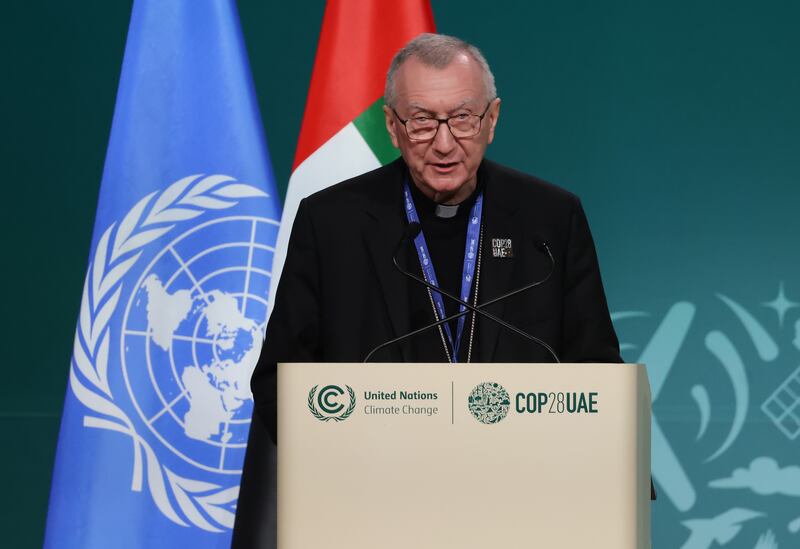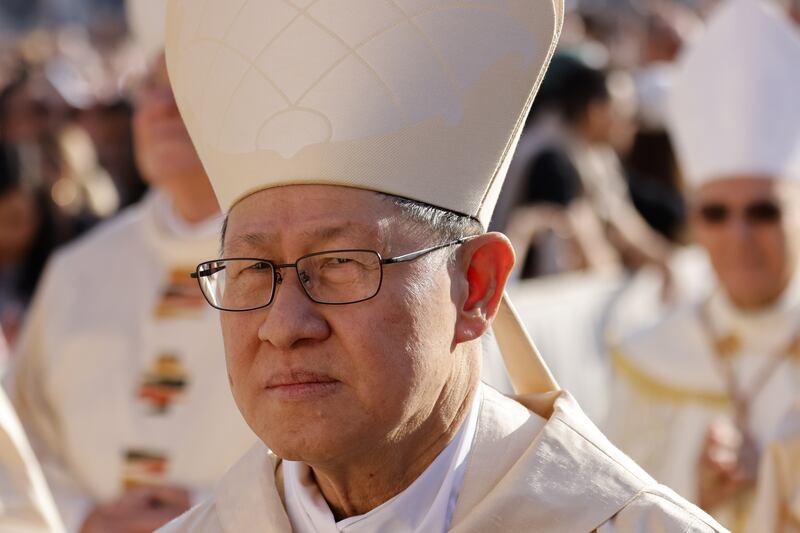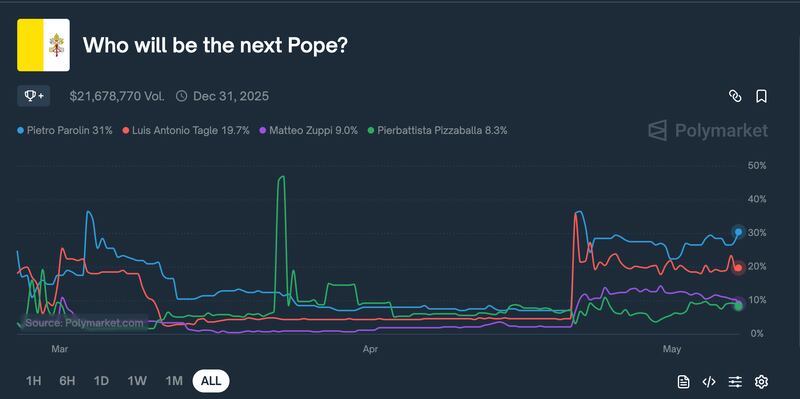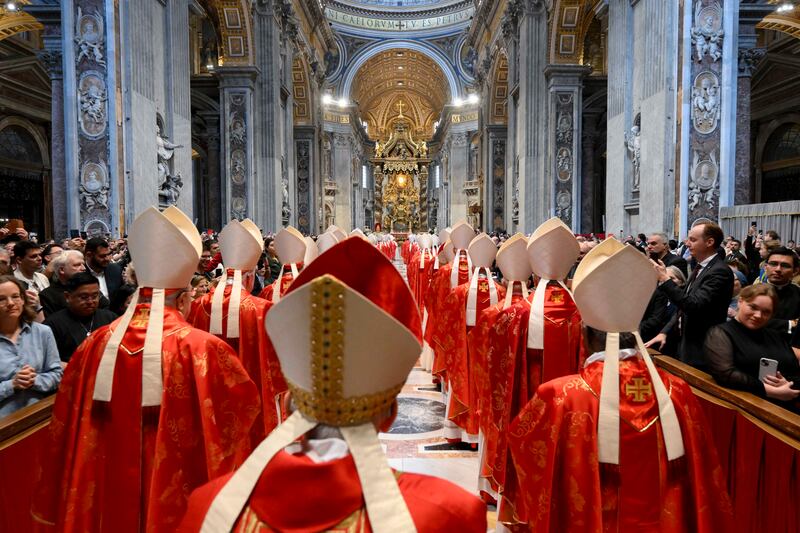The centuries-old tradition of wagering on papal elections was in full swing on Day 1 of the conclave Wednesday.
As black smoke emerged from the Sistine Chapel in Rome’s early evening, indicating the first round of voting had failed to settle on a new pope, any of the 133 cardinals who convened at the Vatican may soon emerge as the next pontiff.
However, betting markets around the world have narrowed the field down to two favorites.
ADVERTISEMENT
Pietro Parolin, a 70-year-old Italian who has been the Vatican’s Secretary of State since 2013, is the favorite at Polymarket, Kalshi, and at foreign bookies.

Coming in a close second is Luis Antonio Gokim Tagle, a 67-year-old Filipino known as the “Asian Francis” because of his similar commitments to social justice.
Kalshi, a prediction market based in New York, gave Parolin a 26 percent chance of winning as of Monday afternoon, followed by Tagle at 22 percent. Next is the Italian Matteo Zuppi, at 10 percent; the Italian Pierbattista Pizzaballa, at nine percent; and the Hungarian Péter Erdő, at eight percent. American cardinal Raymond Leo Burke was given a one percent chance of emerging as pope by Kalshi.

Polymarket, which exploded in popularity during the 2024 presidential election for projecting a comfortable Donald Trump victory while polls placed the race as neck-and-neck, had the same top four. However, it gave the fifth-highest chance to the Ghanaian Peter Turkson.
Kalshi and Polymarket have accepted approximately $30 million in wagers on who will be the next pontiff.
Polymarket launched its “Next Pope” market in February, more than two months before Pope Francis died at 85 on April 21. The market has primarily held steady with Parolin as the favorite, but has had Tagle and Pizzaballa leading for brief periods.

Parolin was described as a “deputy pope” in his role under Francis and is considered to be a moderate choice. Tagle is regarded as a liberal, like Francis, and would be the first modern-era Asian pope should he emerge as the next pontiff. Zuppi, 69, is viewed as a liberal, while Pizzaballa, 60, is considered a conservative who holds some progressive views.
Wagering on papal elections goes as far back as 1503, during the early Renaissance period. While the methods for placing bets have evolved, it remains among the most difficult elections to forecast thanks to its secretive nature and the number of potential winners (Polymarket has accepted wagers on 20 different cardinals).
Harry Crane, a Rutgers University statistics professor who studies election outcomes and betting markets, told USA Today that papal prediction markets are largely being avoided by professional gamblers because of how tight-lipped the cardinals are in the wake of a pontiff’s death.

Still, Crane reminded that prediction markets can make significant moves based on limited information. He recalled how prediction markets moved drastically last summer regarding whether Biden would withdraw from the presidential race.
“We saw those odds change pretty drastically based on very little information about what Nancy Pelosi may or may not have said,” Crane said, recalling big market swings during the 2024 presidential election. “In a way, they’re very similar because that was done behind closed doors, and the (conclave) is done behind closed doors.”
Vatican-watchers are quick to remind those experiencing their first papal election that they are often defined by their unpredictability. As the old saying goes, whoever enters the conclave as pope exits a cardinal.





